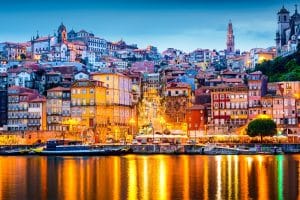7 Countries Where You Can Live Tax Free

Written exclusively for Expat Network by Mark John of Offshore Protection
Thanks in large part to the clampdown of offshore tax havens and the greater push for transparency by the OECD and the EU, merely opening an offshore account or moving your business offshore does not free you from your tax obligations.
There are two different types of strategies that are worthwhile to pursue if you are looking to move to a no tax jurisdiction.
Becoming a resident in:
- A country that has 0% taxation; or
- That has a territorial based taxation system
The only way to completely eliminate your tax burden in this day-in-age is to move your residency.
Why a Tax Residency?
Getting a residency in a zero-tax country not only reduces your overall tax obligation, but it also secures your future lifestyle in a country where you are treated as a first class citizen.
The idea put forward by Flag theory, is to diversify all parts of your life: business, accounts, passports so that you are not beholden to any one authority. Having a residency that suits your needs is an important part of any global risk reduction strategy as it gives you security, maximizes your individual autonomy while at the same time reduces your overall tax obligation.
In order to put this strategy in place the goal is to find a country that offers incentives to non-residents and foreign capital.
Though there are many offshore jurisdictions that are true tax havens, tax laws around the world have changed drastically in last decade for many westernized nations in an attempt to prevent assets from leaving the country.
Consequently western nations have adopted Controlled Foreign Corporation (CFC) laws to stem the flow of capital to no tax jurisdictions.
As a result the most effective way to reduce your tax obligation is to find a country that does not tax worldwide income.
Second Residency in Tax Free Countries
Bahamas
You can get a tax-free residence in the Bahamas if you are not short on capital. The residency program requires a hefty real estate investment of 250,000 USD, however the upside is that the investment required can later be your new second home.
The Bahamas friendly non-resident tax friendly laws have a lot to do with its offshore financial market which provides a large portion of the islands revenue.
Vanuatu
Vanuatu has a great residency program that offers special 15 year residency visas for investors and landowners. It also offers citizenship by investment opportunities for non-residents looking to acquire a second passport for a 150,000 USD investment.
Government fees for Vanuatu residence are a bit high, but because they offer attractive citizenship programs it is worth the relatively higher price tag.
Costa Rica
Costa Rica has been one of the hotspots from American expats for years and its no surprise. The requirements make it possible for anybody with 2500 USD a month income can become a resident.
What is perhaps most attractive about this program is that in just two years you can apply for full permanent residency. Costa Rica has no standing army as well as no taxes on worldwide income and has a way of life that is “pura vida” as the locals call it, making it a simple, relaxed, and enjoyable place to for your second residency.
Guatemala
If you long to live and soak in Mayan culture then Guatemala may be for you. It has a territorial taxation system so all foreign sourced income remains tax free.
One of the benefits of living in Guatemala is that you can live very cheaply. It has become an incredibly popular destination for alternative lifestyle enthusiasts with a number of European and Americans expats settling down permanently.
Getting a residency is simple and with provable income of USD 1000 a month you can apply for residency. The good news is that they have a fast track citizenship program that allows you to get full citizenship in just 5 years.
Nicaragua
Nicaragua is perhaps one of the most affordable places to live in South America. It has a very attractive residency option where they allow you to acquire residency if you life more than 183 days a year in the country and can prove you have a 750 USD monthly income.
Nicaragua is perhaps one of the cheapest residency opportunities in the world. The only reason why it isn’t flooded with applications is that the country is not as developed nor does it have the infrastructure like other South American countries.
Panama
Panama has attracted non residents and foreign capital through its residency and offshore financial services.
Panama has a Friendly Nations Visa program that allows 70 member countries the opportunity to apply for long-term residency for USD 5000 which together with an investment in a local business can get a full-blown passport in as little as 5 years.
It has become quiet popular destination for non-residents looking for another alternative place to live due to its climate, price and accessibility.
Paraguay
Paraguay has a very inexpensive second residency program similar to Panama that allows long-term residence with a USD 5000 bank deposit. Residents are allowed to apply for a passport and obtain citizenship after living in the country for three years. To be eligible you just need to stay in the country for half a year.
Though the passport may not be as popular as a European passport, there are few countries in the world where you can acquire citizenship as easily. Foreign sourced earnings are not taxed so you can see how easily it might be to save big by moving here.
Takeaway
While it is nice to not have to pay 50% taxes on all your earnings, its even nicer be welcomed as a first-rate citizen in a second country.
Whatever your circumstance, finding a second place where you can call home is a luxury you will not regret.